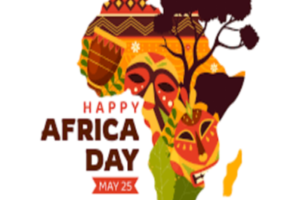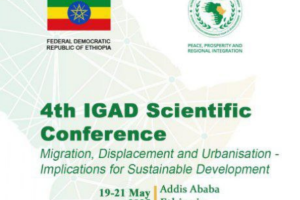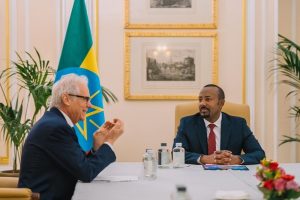
Over the years, multiple countries have resorted to staging national dialogues as a solution to their longstanding sociopolitical and economic grievances. The act of hosting such dialogues has come to be perceived as a symbol of reconciliation and peacemaking in communities that are segregated and polarized on different ideological lines.
As the world continues to grow more complex and interconnected, the presence of a comprehensive national dialogue is more essential than ever to foster healthy and long-lasting relationships between different segments of society.
National dialogues have become a staple feature in various parts of the world, especially where the political climate is characterized by division and disagreement. These dialogues are meant to provide a platform for different groups and voices to air out their grievances and engage in constructive discourse on how to move forward as a united society.
Engaging in a national dialogue provides a valuable opportunity for people to come together and participate in promoting constructive and respectful discourse. By listening to others, sharing ideas, and engaging in support, it is possible to increase understanding, reduce tension, and build more lasting and coherent communities.
Smoothing the path of national dialogue is a critical issue that needs to be addressed in Ethiopia as it has the potential to bring profound benefits to the society. The national dialogue is a platform that encourages discussions and debates amongst citizens that highlight their different perspectives. The benefit of this dialogue is that it offers a chance for people to air their views, opinions, and ideas, which can help to give rise to new solutions to different issues.
By ensuring that the path of dialogue is smooth, Ethiopian citizens can begin to perceive one another as individuals with unique values and ideas, as opposed to mere representatives of particular ethnic or political groups. A smooth national dialogue path, therefore, helps to foster an environment that encourages mutual respect among different groups in the society. The result of such an environment is that it supports the creation of strong social ties that cut across ethnic and political boundaries.
Such ties are critical in ensuring a cohesive society where citizens work together towards achieving common goals that are beneficial to everyone. smoothening the path of national dialogue in Ethiopia is an important step towards building a stronger, more united and peaceful society, where people come together to address their differences and challenges in a constructive manner.
It also provides a platform for people from diverse socio-cultural, political, and economic backgrounds to come together, share their views, and find common ground. In doing so, it cements oneness and unity among the general public, improving social cohesion and national integration. When people are able to share their perspectives and experiences, they begin to understand each other better.
Through dialogue, people can find common ground, even if they come from different backgrounds, religions, or political affiliations. This creates a sense of togetherness and belonging, promoting national unity. By bringing together people from diverse backgrounds, everyone has an opportunity to participate and make their voices heard. This not only ensures that everyone’s views are represented but also provides a sense of equity and fairness.
When people feel that they have an equal say in national issues, they are more likely to feel included and invested in the success of their country. In addition to promoting social cohesion, national dialogue can also lead to policy changes and reforms that benefit the country as a whole. When people from different sectors of society come together to discuss national issues, they can identify common problems and work towards finding solutions.
This can lead to policy changes and reforms that address the needs of all citizens, regardless of their background or affiliation. Moreover, national dialogue can bring about national healing and reconciliation. In Ethiopia, for example, the country has experienced various conflicts and political upheavals, which have resulted in deep-rooted divisions and mistrust between different communities.
National dialogue can provide a platform for people to share their grievances, express their pain, and work towards finding common ground. This can help to alleviate tensions and promote healing and reconciliation. When people are engaged in dialogue, they are more likely to participate in the democratic process and hold their leaders accountable.
By the same token, national dialogue can help to bridge differences between different regions and ethnic groups, reduce tension, and promote collaboration towards establishing a stable country. As people come together to discuss national issues, they can identify challenges and opportunities for economic growth. This can lead to the formulation of policies and initiatives that promote economic development, job creation, and poverty reduction.
In addition to cementing oneness and unity among the general public, national dialogue promotes social cohesion, inclusivity, trust, democracy, good governance, conflict resolution, economic development, national healing, and patriotism. As such, it is essential for building a stable, prosperous, and united Ethiopia.
When people are free to share their views through dialogue, they can identify solutions to problems that affect them all. In doing so, they can also find areas of agreement and common ground, which forges a sense of trust between them. Through this bond of trust, Ethiopians can move forward together as a united nation.
National dialogue provides an effective platform for inclusivity and diversity in Ethiopia, where people from various socio-cultural backgrounds, economic and religious beliefs come together to share their opinions and views. This form of dialogue is crucial in fostering a sense of inclusiveness and creating an atmosphere of mutual respect and appreciation.
In addition, national dialogue promotes cultural diversity in education and seeks to create an educational system that is inclusive of all cultures and ethnic groups.
Through national dialogue, diverse groups can learn to work together in harmony to promote common interests, creating a stronger and unified nation. National dialogue creates a safe space for people from various backgrounds to disagree, and constructively resolve differences leading to inclusivity and the building of cohesion, which are key ingredients for social harmony.
Participants, who took part recently at the training hosted by Ethiopian National Dialogue Commission (ENDC), said they are ready to expedite the participant selection as well as agenda setting activities in their respective districts.
During the closing ceremony of the three-day training, the participants said that they would work closely with the ENDC to assist the commission in identifying participants in credible, inclusive, transparent as well as fair ways.
Getaneh Kebede, Representative from Ethiopian Citizens for Social Justice (EZEMA) party, highlighted the importance of the training and called on political parties to seize the national dialogue as an opportunity to resolve the nation’s long-lasting challenges in a peaceful manner.
He added: “Peace is the only powerful weapon that the current generation could pass down to posterity. Thus, everyone should bring its quest to the table and be ready to be part of a solution as well. ”
In a similar vein, Kassech Wolde, Representative from Prosperity Party stated that the training has equipped her with the necessary information on how to assist the agenda setting as well as participant selection.
She urged everyone to present their issues in a peaceful manner while becoming part of the solution.
For Yemarshet Begashaw, representing women’s organizations, the training is instrumental to create awareness on the concept of National Dialogue and its methodology as well as its importance. The training would also allow them to exert their responsibility in a fair and inclusive manner.
A religious leader, Aba Hailemichael Woldesamuel, indicated that the training was insightful which allowed them to look back at the nation’s indigenous knowledge and how it could be applied to in the National Dialogue.
“By learning from past mistakes, Ethiopians should actively take a positive role in realizing the National Dialogue.”
Prof. Mesfin Araya, Commissioner-General of ENDC, said that the trainees would return to their respective districts and would facilitate the selection of the participants in concert with the commission.
The selected participants as well as representatives of various institutions would then take role in the agenda setting process, he remarked.
BY ADDISALEM MULAT
The Ethiopian Herald September 16/2023




